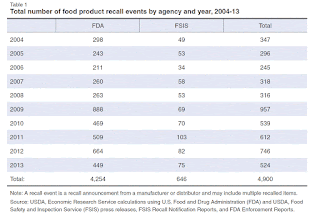There are now 121 cases of E. coli infection from romaine lettuce with 52 hospitalizations and one death. Cases have occurred in 25 different state throughout the country.
FDA has identified one farm linked to whole head romaine lettuce involved with cases in Alaska, but have not yet identified where the contamination occurred. "The FDA has identified one farm as the source of the whole-head romaine lettuce that sickened several people at a correctional facility in Alaska. However, the agency has not determined where in the supply chain the contamination occurred. The agency is examining all possibilities, including that contamination may have occurred at any point along the growing, harvesting, packaging, and distribution chain before reaching the Alaska correctional facility where it was served." The farm was identified as Harrison Farms of Yuma AZ.
FDA further states that harvesting of romaine lettuce from Yuma is done and product would not be past its shelf-life. "All of the lettuce in question from this farm was harvested during March 5-16 and is past its 21-day shelf life. Because the growing season in the Yuma region is at its end, the farm is not growing any lettuce at this time."
CDC Outbreak Update
https://www.cdc.gov/ecoli/2018/o157h7-04-18/index.html
Multistate Outbreak of E. coli O157:H7 Infections Linked to Romaine Lettuce
Posted May 2, 2018 2:30 PM EST
At A Glance
Case Count:
121 (https://www.cdc.gov/ecoli/2018/o157h7-04-18/epi.html)
States:
25 (https://www.cdc.gov/ecoli/2018/o157h7-04-18/map.html)
Deaths: 1
Hospitalizations: 52
Recall: No




